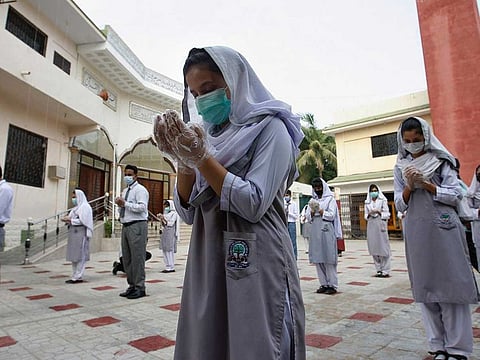Matriculation exam papers appear on Whatsapp before reaching exam centres
Parents and educationists criticise Karachi exam board

Karachi: The Secondary School Certificate (matriculation) annual examinations commenced in Karachi after a one year, but the candidates at a number of centres didn’t get question papers in time.
Instead, the question papers were leaked on Whatsapp and other platforms of social media. In some cases, the papers were leaked soon after the commencement of the examination. Physics paper caused immense problems to the candidates, as in the case of certain examination centres: They had to wait for up to two hours to get the question paper. Instant leakage of the contents of the question paper on the social media provided an opportunity to certain unscrupulous candidates to use unfair means while appearing for the examination.
The parents and educationists concerned criticised the Board of Secondary Education Karachi (BSEK) in conducting the exams as neither it was able to maintain secrecy nor it took measures to make sure that the exam commenced all over the city at the same time.
The BSEK this year has to conduct examinations only for the elective subjects with reduced timing of two hours as per the decisions of the Sindh Education Department due to the pandemic.
The BSEK officials maintained that they had given extra time to the candidates wherever the exams didn’t commence on time.
In his statement, Sindh Chief Minister’s Adviser on Universities and Educational Boards, Nisar Ahmed Khuhro, held the BSEK Chairman responsible for the situation.He sought explanation from both the Chairman and Controller of Examinations of the BSEK. He said the investigation had been launched to ascertain the reasons behind this mismanagement.
The BSEK, in a press statement, blamed the careless conduct by Central Control Officers for all the problems. It said that it had provided 2.5 million face masks, 513 bottles of hand sanitisers and 1,000 thermometres to make sure that the exams were held in line with the standard operating procedures prescribed by the government.









